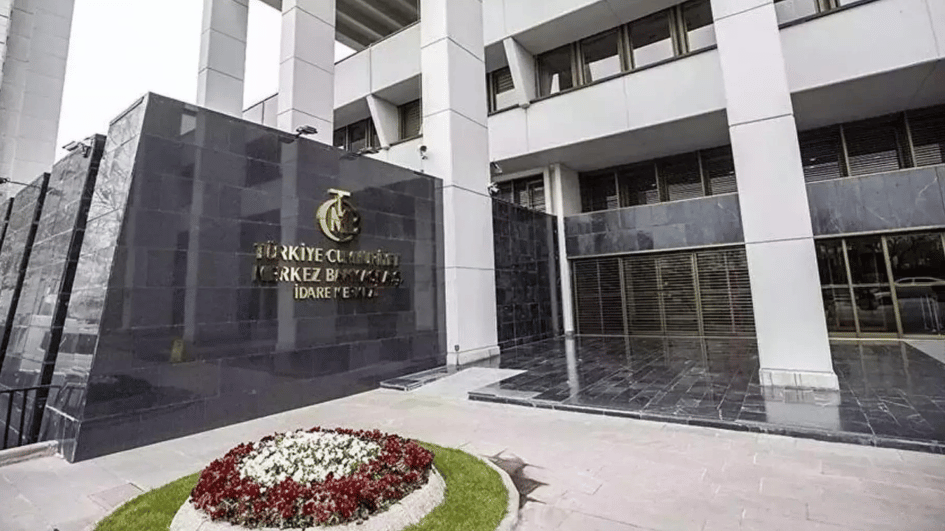Central Bank eases securities maintenance rules for lenders
ANKARA

The Central Bank has announced that it will scrap the implementation regarding securities maintenance based on loan growth while raising the monthly maximum interest rates to be charged for credit cards.
The bank said it is considering terminating the securities maintenance practice “in a short while.”
The securities maintenance ratio applied to liabilities subject to securities maintenance will also be reduced from 4 percent to 1 percent, according to the bank.
The Central Bank continues to simplify macroprudential policies to safeguard the functionality of market mechanisms and macro-financial stability, it said in a statement.
The bank started to ease securities maintenance regulations last year.
Meanwhile, Fitch Ratings said in a report that GCC banks with Turkish subsidiaries should benefit from Türkiye’s macroeconomic adjustment and its shift to more conventional and consistent economic policies.
Disinflation should reduce the subsidiaries’ net monetary losses, and slower Turkish lira depreciation should reduce the adverse capital impact from currency translation losses, according to the ratings company.
Fitch upgraded 18 Turkish banks in March, including several GCC-owned subsidiaries, following the upgrade of Türkiye’s sovereign rating from "B" with a stable outlook to "B+" with a positive outlook
Fitch said at that time that the positive outlook reflects its expectation that Türkiye’s overall macroeconomic policy stance will be consistent with a significant decline in inflation, as well as a continued reduction in external vulnerabilities.
In the report on banks, Fitch forecasts Turkish inflation to average 58 percent in 2024 and 29 percent in 2025.
Meanwhile, in a letter to the government explaining why it missed the inflation target, the Central Bank reiterated that disinflation will be established in the second half of 2024, adding that the coordination of monetary and fiscal policies plays a pivotal role in this process.
“In this context, revising the minimum wage once a year, setting administered prices, wage and tax adjustments consistent with the medium-term program’s inflation forecasts and supporting the tight monetary policy stance with a prudent fiscal policy are critical to establishing the projected disinflation path,” the bank stressed.
The bank underlined that it will maintain its tight monetary stance until there is a significant and permanent decline in the underlying trend of monthly inflation and until inflation expectations converge to the projected forecast range.
The bank also announced that the monthly maximum interest rates to be charged for credit cards were increased from 3.66 percent to 4.25 percent by hiking the amount added to the monthly reference rate to 114 basis points from a previous 55 basis points.
















